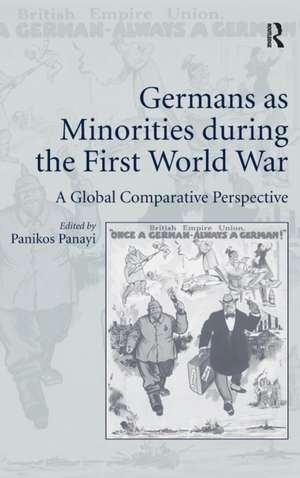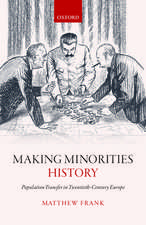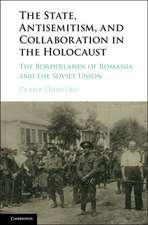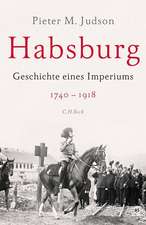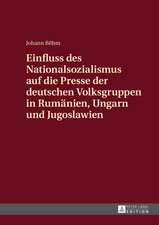Germans as Minorities during the First World War: A Global Comparative Perspective
Editat de Panikos Panayien Limba Engleză Hardback – 28 iun 2014
| Toate formatele și edițiile | Preț | Express |
|---|---|---|
| Paperback (1) | 416.22 lei 43-57 zile | |
| Taylor & Francis – 22 dec 2017 | 416.22 lei 43-57 zile | |
| Hardback (1) | 1065.78 lei 43-57 zile | |
| Taylor & Francis – 28 iun 2014 | 1065.78 lei 43-57 zile |
Preț: 1065.78 lei
Preț vechi: 1299.73 lei
-18% Nou
203.93€ • 213.50$ • 168.74£
Carte tipărită la comandă
Livrare economică 07-21 aprilie
Specificații
ISBN-10: 1409455645
Pagini: 348
Dimensiuni: 156 x 234 x 21 mm
Greutate: 0.77 kg
Ediția:1
Editura: Taylor & Francis
Colecția Routledge
Locul publicării:Oxford, United Kingdom
Cuprins
Notă biografică
Descriere
Offering a global comparative perspective on the relationship between German minorities and the majority populations amongst which they found themselves during the First World War, this collection addresses a theme of major concern to historians of twentieth-century Europe. Emerging from a long term co-operative project, which culminated in International Colloquium at De Montfort University in 2011, the book brings together scholars from throughout the world who have worked on aspects of the subject over many years. Divided into two sections, the volume opens with three overview chapters, which provide a background to the second section of ten chapters in which the individual case studies tackle key questions. These include: the extent to which an established German community existed before the outbreak of the First World War, and whether it survived the conflict; how 'public opinion' (the press, parliament and ordinary citizens) reacted towards the presence of German enemy aliens in their midst; how governments treated their German populations during the First World War; why nation states and their populations throughout the world behaved in a similarly intolerant manner towards Germans in their midst; whether the War represented a significant turning point in the evolution of nationalism and xenophobia; and if there was a 'copycat' element amongst both state behaviour and the attitudes of populations towards Germans throughout the world from New Zealand to Russia? By exploring these and related issues, the collection uses the example of the experience of Germans, to see whether the First World War can be regarded as a turning point in the mistreatment of minorities, one that would lead to even worse manifestations of racism later in the twentieth century.
